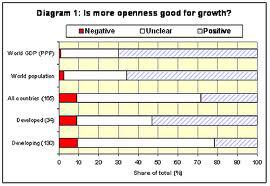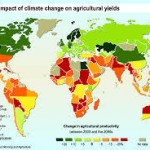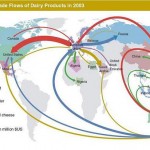
Alternatives to aid in ending poverty 3: Trade
This blog post refers to the previous blog posts, Alternatives to aid in ending poverty 1 & 2.
Across the MDGs, the poorest of poor receive the least aids, thus shows small improvement in rural areas. This also relates to another issue – weak government system, in which the government of developing countries relying on overseas aid for people living under poverty, rather spreading the aid to the poorest to have the basic needs.
Critics argue that MDGs’ goals are missing to solve necessary issues such as debt, climate change and trade – which can impact on poverty.
Trade – Assisting developing countries to completing in global market has been considered as one of vital alternatives to end poverty. Some critique at improving trading rules for developing countries are worth solution to end poverty rather than providing aids(1).
Whilst competitiveness and development are strongly demanded in trading rules among developed and industrialized countries, some argue that the competitive rules are not fair for developing countries(1) – because trading standard between developed and developing countries widely differ.
As developed countries have greater skills of growing trade in the global markets, they are more likely to success in exporting whilst leading developing countries more likely to rely on imports(1) – this certainly threats people living below poverty in developing countries, such as price rises in food.
Whilst the global markets show its great development, industrialized countries produce larger quantities of products; therefore enable exporting products prices to decrease. Whilst industrialization countries show such great development in exporting, developing countries are on contrast, pushed behind from the global markets.
For example, Free Trade agreement is strongly biased against developing countries- where people get lower incomes. In the global trading system, 50 least developed countries has declined to 0.6%, less than a third of what it was 40 years ago (2). Keeping developing countries left behind in the global markets leads people living in developing countries- especially workers who work for long hours – to even worse living condition – in which, workers would be forced to work for longer hours and but for little payment.
In fact, according to PIK’s research, most of mother members who work on the farms are working whole days for a little pay or sometimes even working without any pay – though it has been tough for those farm workers to find other sources of income.
Most importantly, those developing countries with lower income –and where farming is their main source of people’s income- need more attention from developed countries to be partners in the global markets, and must be aided for better trading conditions, rather pushing them behind the trading competition.
Indeed, in order to achieve better economic condition for people living in developing countries, it is argued that the WTO would need to be progressively decommissioned and the remaining trade activity should instead be overseen by United Nations agencies (2).
1 Sydney Morning Herald, As long as the rich can speculate on food, the world’s poor go hungry (2012):
http://www.smh.com.au/federal-politics/political-opinion/as-long-as-the-rich-can-speculate-on-food-the-worlds-poor-go-hungry-20120630-219ja.html
2. Sahre the World’s Resources, Reforming International Trade (2006): http://www.stwr.org/imf-world-bank-trade/reforming-international-trade.html




